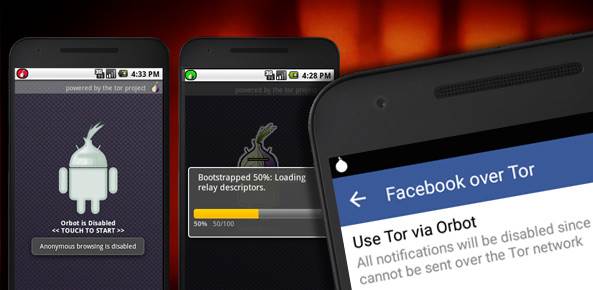Mobile Facebook users will soon be able to connect to the service anonymously by using the social media giant’s Android app via The Onion Router network, or Tor, and the Orbot proxy. Tor is used to hide computer IP addresses, typically by concealing the identity of Internet users.
The new feature builds on a previous collaboration that let Facebook users directly access its site via the Tor browser on personal computers. Facebook attributed the decision to provide additional Tor support to the response from a “sizeable community” around the PC feature, which was launched in 2014.
In a blog post, Facebook said that launching a dot-onion address “increased the security of Tor connections to Facebook by eliminating the steps that required traffic to travel beyond the cryptographic assurances provided by the Tor network.” That feature, however, could only be accessed from Tor-enabled browsers and not directly from the Facebook mobile app.
An Intern’s Idea
Using Tor on Android requires a download of Orbot, a proxy app that is used to connect to Tor. Users then need to update Facebook’s app settings. Orbot is available on Google Play or the Orbot F-Droid repository. The Orbot application lets mobile phone users access the Web, instant messaging and e-mail without being monitored or blocked by their mobile Internet service providers. The network does so by bouncing users’ traffic through a series of computers around the world.
The move by Facebook to bring Tor to its Android app comes during a debate over how lawmakers and ISPs should treat digital privacy as they seek to catch hackers. Facebook has no plans to bring Tor to the version of its mobile app made for the iPhone. The new mobile feature for the Android app stemmed from a suggestion by Will Shackleton, a British computer-science university student, who spent a summer internship at Facebook’s London office.
Kate Krauss, a spokeswoman for the Tor Project, told Reuters yesterday that Android support could help expand Tor due to Facebook’s large following. Facebook has more than 1.5 billion monthly active users.
“Everybody in the world needs more privacy online and almost everybody is on Facebook, Krauss said. “This will allow people to choose whether to share their location or not. For some people, this is convenience. For others it is lifesaving.”
A Smart Move
We contacted Tom Raftery, an analyst with UK-based RedMonk, to get his take on the move to bring Tor to the Android Facebook app. Raftery classified it as a canny move on Facebook’s part.
“They have seen the winds of change are blowing towards an increased appetite for privacy and anonymity online, and they are skating to where the puck is headed,” says Raftery. “This is also a very important move for Facebook users in countries where social media use is monitored and censored — this will allow them access to the social network without fear of repercussions.”
Facebook users with Android devices will be able to access the social network via Tor directly from the app, probably sometime this week, Facebook said. The company will be soliciting feedback from users once they get the new feature.







